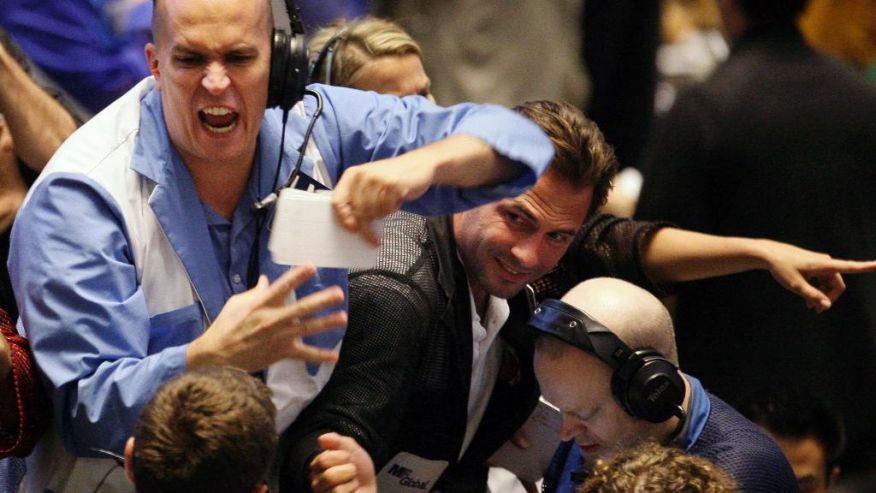It’s just a few dozen positions at this point, a drop in the bucket, but the world is a little quieter as the Chicago open-outcry trading pits are (almost) completely closing, the transactions now handled electronically. It’s progress, for sure, but jobs are lost and perhaps something more. From Bernard Condon and Don Babwin at the Associated Press:
Since at least 1870, when the first octagonal pits were installed in Chicago, traders have been reading the “tone” of the crowd to sense where prices might be heading and feeling the “rush” when placing a big bet.
After more than 40 years of trading, George Gero knows all about the feel and thrill of the pits. But he is also familiar with wrenching change, and learning to adapt to it.
After fleeing from the Nazi’s in wartime Hungary, he came to New York, and found a home in the commodities pits downtown. And at 79, he’s still at it, marveling at how the computer allows him to find prices for gold and currencies around the world, no matter the time of day.
But Gero, a strategist at RBC Capital Markets, is not a complete fan of the new way. “It’s very cold … strictly numbers,” he says.
[Dan] Grant, the runner turned clerk who now oversees his own trading firm, says he has embraced change, too. But he mourns the loss of the kind of entry-level positions that gave kids without much education a chance to prove themselves, just as he did.
“The customer doesn’t have to call anyone to execute a trade,” he says.
[Dan] Sullivan, the broker, puts it bleakly.
“It’s kind of a slow death for people,” he says. “Maybe I am holding on to something that needs to go.”•

